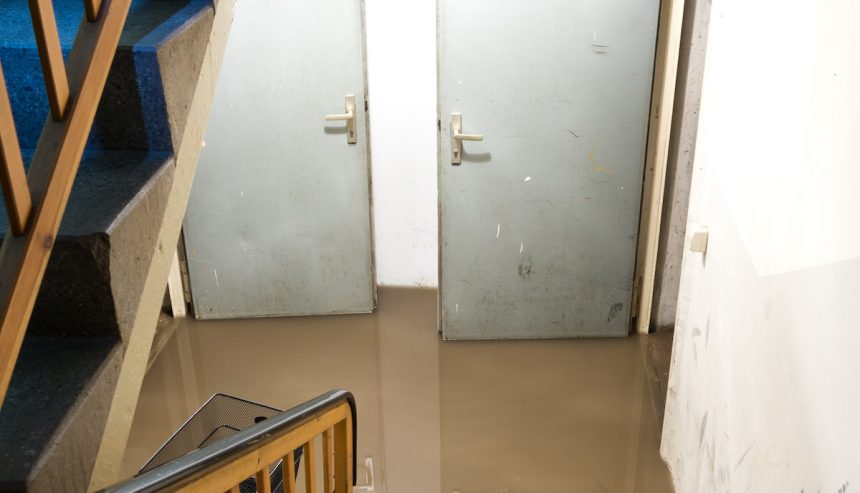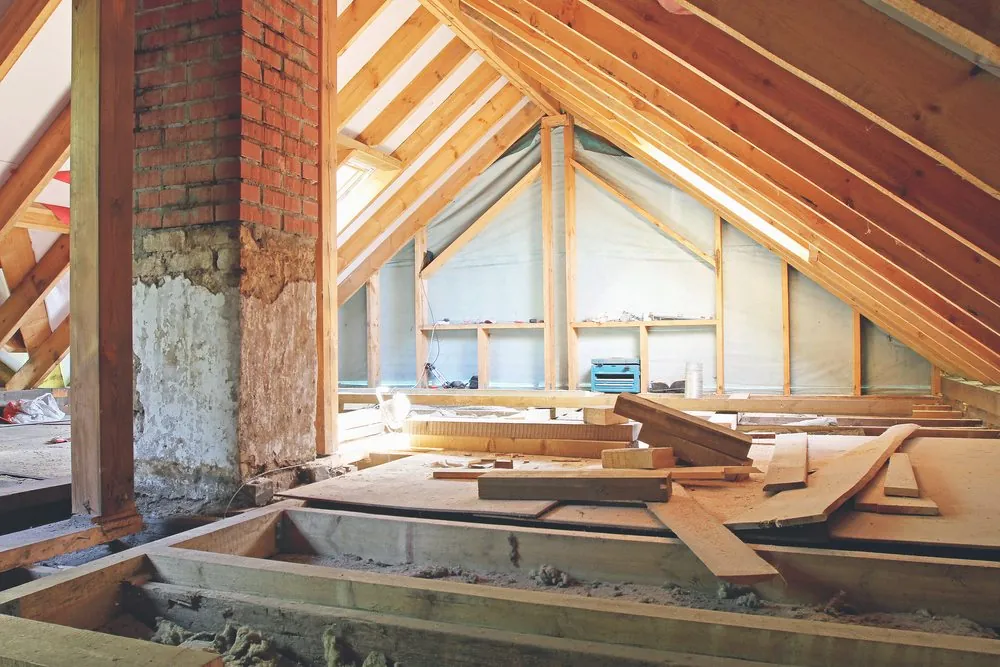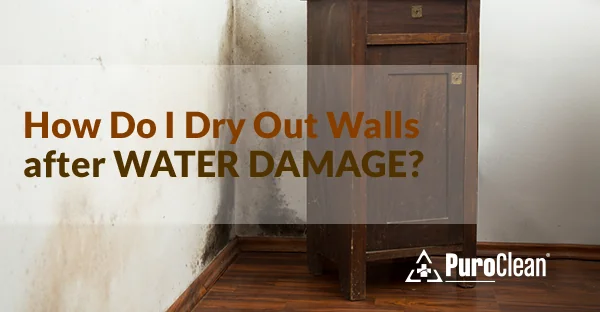Basements are a common area prone to flooding. A flooded basement can be caused by many things. Identifying the cause of a flooded basement can help you take the necessary steps to solve the issue and ensure it doesn’t happen again.
Why a Basement Might Flood
Basement flooding is a prevalent issue that can happen unexpectedly, often catching homeowners off guard. This problem is particularly common during periods of heavy rains or when snow melts rapidly in the spring, leading to a sudden influx of water. However, the causes of basement flooding are not limited to just seasonal weather patterns. Several other factors can contribute to this issue, each requiring careful consideration and proactive measures to mitigate the risk of flooding.
Understanding these various factors that cause basement flooding is crucial for homeowners. By being aware of the potential risks and implementing preventive measures, such as regular maintenance of drainage systems, proper landscaping, and addressing structural vulnerabilities, it is possible to reduce the likelihood of basement flooding and protect the home from water damage.
There are many possible causes of basement flooding. Some of the most common include:
- The house was built in an unsuitable location. A surface drainage system can be steered toward your home if your home’s lot grading is poorly designed. If this is the case, consider reshaping your yard, so that rain or stormwater flows away from your home.
- The walls and floor are not properly sealed. During home construction or remodeling, the basement floor and walls must be protected with a sealant to avoid water leakage and flooding. Inspect your basement’s walls and flooring regularly. Seal any cracks or openings you find.
- The gutter system is clogged. Gutters and downspouts can become blocked by debris and overflow with water. The excess water can seep through soil near your home’s foundation, exposing your basement to water. Clean and inspect your gutter system at least once a year to ensure proper water flow.
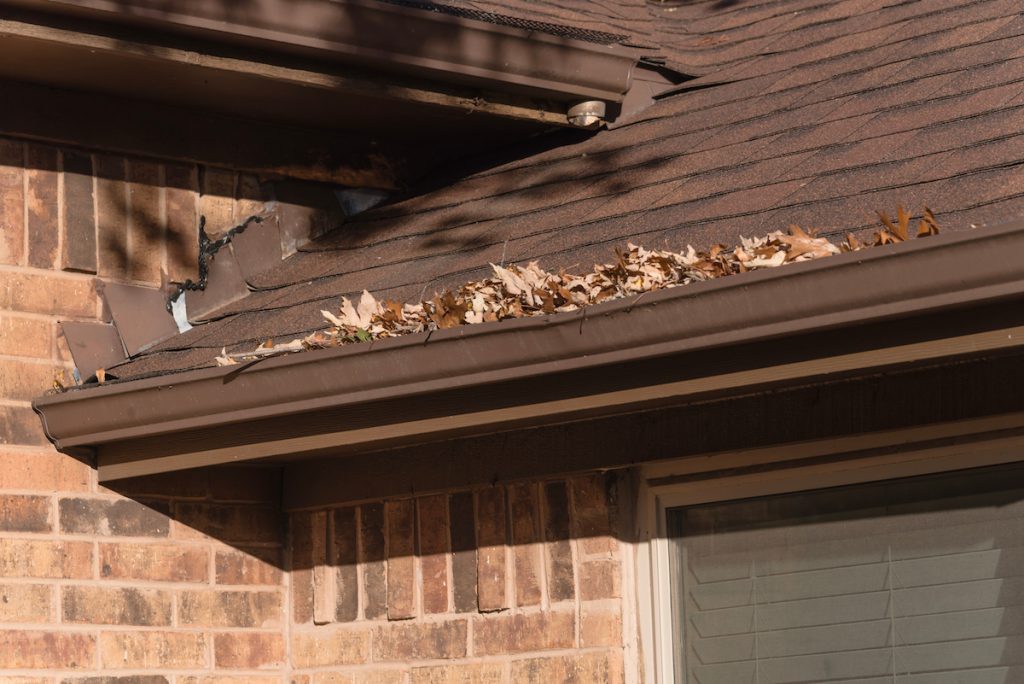
- A sewer backup has occurred. A sewer system can sometimes become overwhelmed with black water or stormwater. As a result, harmful water can invade your home through toilets, sinks, or floor drains. Install backwater valves to stop backflows on the sanitary sewer line. Read more about black water damage here.
- The sump pump has failed. Sump pumps safeguard your basement against water. They should be regularly inspected, cleaned, and tested to lessen the chance of a broken sump pump.
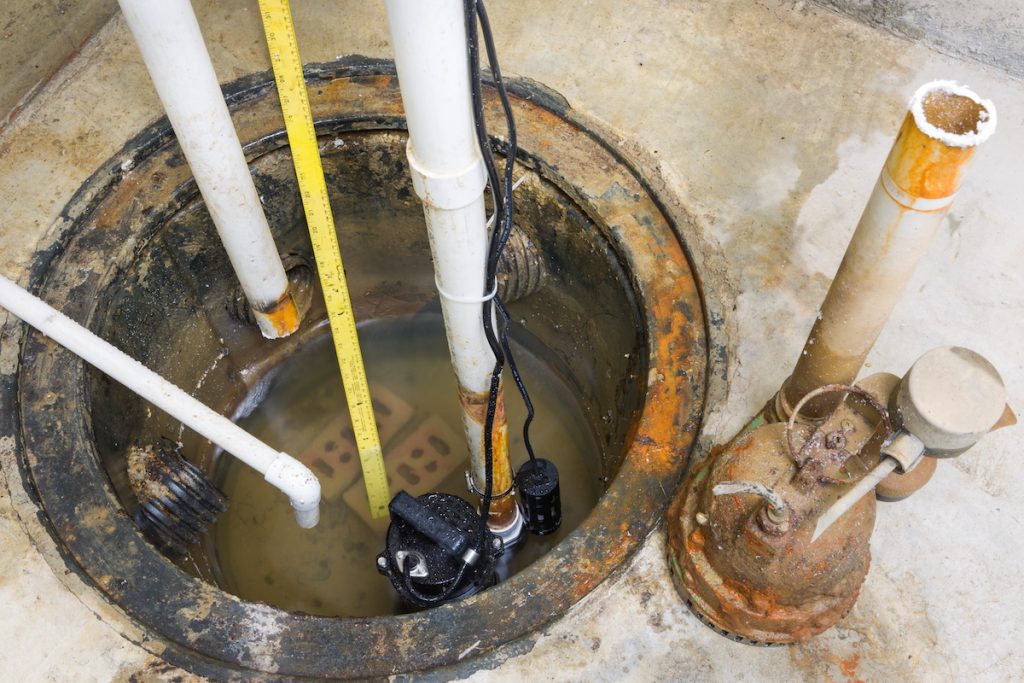
- Heavy rainfall. Excess water from heavy rains can quickly collect in basements. The water can seep into cracks or openings around basement windows and doors, causing basement flooding.
- Plumbing leaks. A leaky pipe under your basement can eventually result in water entering your basement and causing a flood.
What to Do When Your Basement Floods
A basement flood can pose significant health and safety risks to you and your family. Acting swiftly and efficiently is crucial to minimize damage and protect your household. Here are some essential tips to keep in mind if you suddenly find your basement flooded.
Prioritize Electrical Safety
First and foremost, ensure that all electrical equipment in your basement is turned off and unplugged. Water and electricity are a dangerous combination, and turning off electrical devices reduces the risk of electrocution or other electrical injuries. If the water level is high or you cannot safely reach the electrical panel, contact a professional electrician or your utility company for assistance.
Remove Standing Water
If it’s safe to do so, try to remove any standing water as quickly as possible. Use a wet/dry vacuum, a sump pump, or buckets to bail out the water. Prompt removal helps prevent further damage to your home and belongings. However, if the water level is significant, consider hiring a professional water removal service.
Protect Yourself from Contaminated Water
Avoid entering the flooded area if possible, as the water might be contaminated with sewage, chemicals, or other toxic substances. If you must enter the flooded basement, wear protective gear such as rubber boots, gloves, and possibly a mask to protect yourself from harmful contaminants.
Contact Your Insurance Company
Reach out to your insurance company as soon as possible to report the flood. Many homeowners’ policies cover flood damage, and starting the claims process immediately can expedite basement flooding repair and compensation. Document the damage with photos and keep records of any expenses related to the flood for your insurance claim.
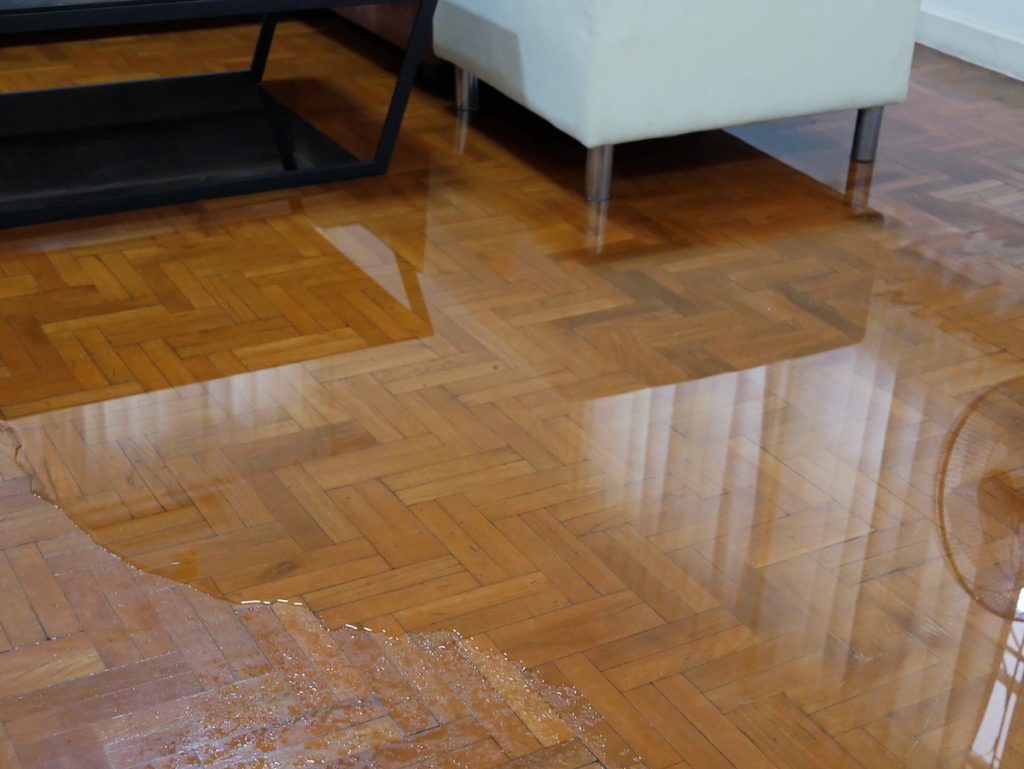
Identify the Source of the Flood
Investigate to see if there is any evidence of a leak or other issue causing the flooding. Look for signs such as dripping pipes, foundation cracks, or overflowing gutters. If the source of the water isn’t immediately apparent, contact a professional plumber or a water damage restoration expert to diagnose and address the problem.
Dry Out the Basement
Once the standing water is removed, focus on drying out the basement as thoroughly as possible. Open windows and doors to promote air circulation, which helps speed up the drying process. Utilize fans and dehumidifiers to remove moisture from the air and prevent mold growth. Remove wet carpets, furniture, and other belongings to dry them out separately, if possible.
Prevent Future Flooding
Finally, take steps to prevent future flooding. Ensure that your gutters and downspouts are clean and direct water away from your home’s foundation. Consider installing a sump pump or upgrading your existing one to handle higher water volumes. Seal any foundation cracks and improve basement waterproofing measures. Regularly inspect your home’s plumbing system to catch and repair leaks before they lead to flooding.
By following these steps, you can effectively manage a basement flood, mitigate damage, and protect your family from associated health and safety risks. Proactive measures and timely action are key to handling such emergencies efficiently.
How to Prevent Basement Flooding
Basement flooding can cause extensive damage to your home and belongings, but taking proactive steps can help mitigate the damage and prevent future flooding issues. Here’s a detailed guide on what you can do to protect your basement from flooding:
Regularly Check and Repair Your Sump Pump
A sump pump is your first line of defense against basement flooding. Regularly inspect your sump pump to ensure it is functioning correctly. Test it by pouring water into the sump pit to see if it activates and pumps the water out efficiently. Consider investing in a battery backup system for your sump pump to ensure it continues working during power outages, which often accompany severe storms.
Install Backwater Valves
Backwater valves are crucial in preventing sewage from backing up into your basement through drainpipes during heavy rainstorms. These valves automatically close if water or sewage tries to flow back into your home, providing an essential safeguard. Ensure that a professional installs the backwater valve and maintains it regularly to keep it in optimal working condition.
Clean Out Your Gutters and Downspouts
Clogged gutters and downspouts can lead to water overflow, which may pool around your home’s foundation and seep into the basement. Regularly clean out leaves, debris, and other blockages from your gutters and downspouts. Ensure that downspouts direct water at least six feet away from your home’s foundation to reduce the risk of water infiltration.
Waterproof Your Basement
Proper waterproofing is essential to prevent water from entering your basement. Inspect your basement walls and floors for cracks and seal them using appropriate waterproofing materials. Consider applying a waterproof coating to the interior walls and installing a drainage system, such as a French drain, around the perimeter of your basement. Exterior waterproofing measures, like installing a waterproof membrane on the foundation, can also provide additional protection.
Maintain Proper Landscaping
Ensure that the ground around your home slopes away from the foundation. Proper grading helps direct water away from your home, reducing the risk of basement flooding. Avoid planting trees or large shrubs too close to the foundation, as their roots can cause cracks and allow water to seep in.
Install Window Well Covers
If your basement has windows below ground level, install window well covers to prevent water from pooling in the wells and potentially leaking into your basement. Choose covers that are durable and fit securely over the window wells.
Regularly Inspect Plumbing
Inspect your home’s plumbing system for leaks and repair them promptly. Pay attention to areas where pipes enter the basement and ensure they are sealed correctly. Consider installing water sensors or alarms that can alert you to leaks or high moisture levels in the basement.
Additional Tips and Resources
For more detailed information on handling basement flooding, check out these tips on how to clean up a flooded basement. Proper cleanup is crucial to prevent mold growth and further damage. By following these steps and maintaining your basement and home infrastructure, you can significantly reduce the risk of basement flooding and ensure your home remains safe and protected.
With diligent maintenance and proactive measures, you can safeguard your basement against flooding and enjoy peace of mind, knowing your home is better prepared to handle severe weather conditions.
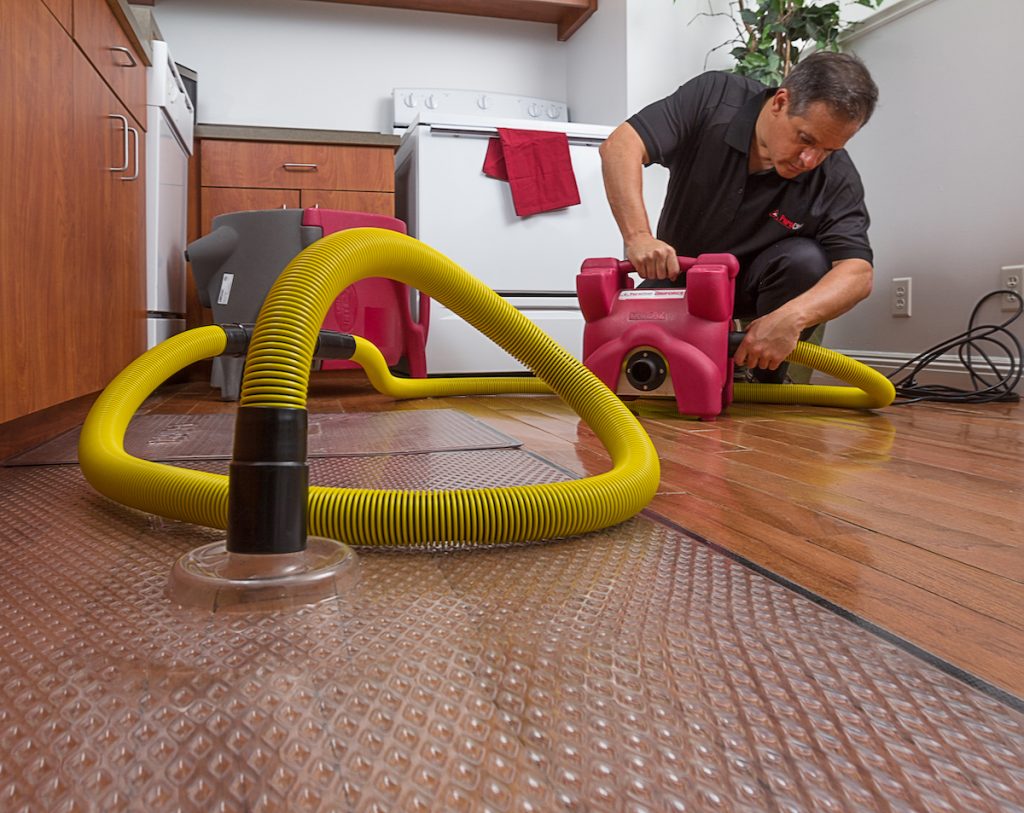
For Professional Water Damage Repair, Call PuroClean!
If you’re currently dealing with basement flooding, you may need to hire a professional and experienced company like PuroClean to assess the situation. Contact your local PuroClean office or call us at (800) 755-7876.
